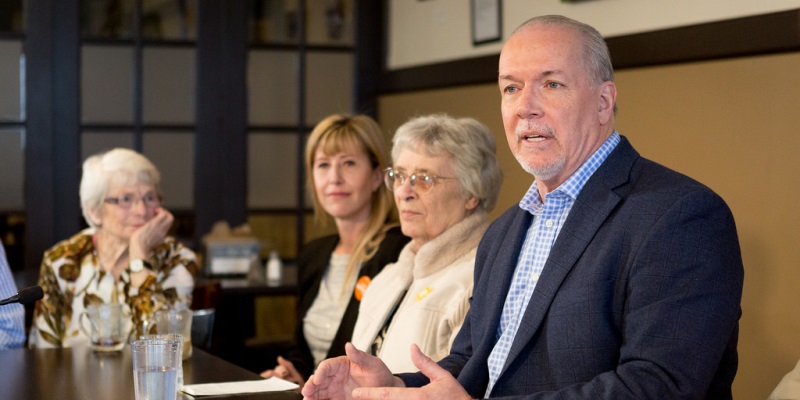B.C. Budget 2019—a missed opportunity

In its second budget, British Columbia’s NDP government had a great opportunity to show restraint in government spending and address the province’s waning tax competitiveness. But once again, the government substantially increased program spending and demonstrated its unwillingness to lower taxes.
After increasing program spending in its first year in office by 6.4 per cent, the B.C. government chose to again increase spending rather than tackle a lack of tax competitiveness. Specifically, program spending is projected to increase this year by 4.4 per cent or $2.3 billion.
Thankfully, the increased spending did not come at the expense of deficits, at least for the operating budget. The current fiscal plan calls for small surpluses over the next three years ranging from $274 million to $585 million. To put these numbers in context, the total buffer over the next three years is 1.2 per cent of revenues. To be clear, though, these small surpluses only exist if B.C. avoids an economic slowdown or outright recession.
In addition, these small surpluses don’t account for capital spending such as new schools, highways, etc. which are included in the capital budget. All told, the province expects its net debt to increase by $2.7 billion or 6.2 per cent this year alone. And over the next three years, net debt is expected to grow almost 25 per cent.
The increased spending over the last two years has prevented any meaningful tax relief and indeed already precipitated a host of tax increases. Consider that if the B.C. government had simply held spending increases over the last two years to the rate of inflation plus population growth (meaning per person spending would have been held constant), it would have roughly $5 billion this year with which to reduce taxes.
Tax competitiveness is an increasing issue for B.C. and indeed the country. It imperils our current and future ability to retain and attract top talent, entrepreneurs, investors and skilled workers to the province, all of who are essential to a growing, dynamic economy.
Since the 2017 election, the B.C. government has raised the top personal income tax rate on entrepreneurs, business owners and professionals from 14.7 per cent to 16.8 per cent. The province now has the ninth highest combined federal and provincial personal income tax rate out of 61 American states and Canadian provinces. The lack of competitiveness with neighbouring states such as Alaska and Washington, which do not have any state-level personal income taxes, compounds the tax problems facing B.C.
There’s perhaps no more pressing tax issue in B.C.—outside of fixing the province’s sales tax—than getting competitive on personal income taxes, which the NDP government’s first budget failed to address.
To demonstrate the effect on entrepreneurs, a recent study analyzed the impact raising personal tax rates had on small business startups. The research found that the recent increase to the province’s tax rate on entrepreneurs by the B.C. government may have prevented 662 new businesses from starting in the province. Consider that the province’s tax rate on entrepreneurs has been raised by more than six percentage points when federal increases are included.
This year’s provincial budget failed to restrain program spending and did not acknowledge that B.C. is becoming an increasingly uncompetitive jurisdiction in which to do business. The lack of attention paid to these issues in the budget was disappointing and represents a missed opportunity for the government.
Authors:
Subscribe to the Fraser Institute
Get the latest news from the Fraser Institute on the latest research studies, news and events.

